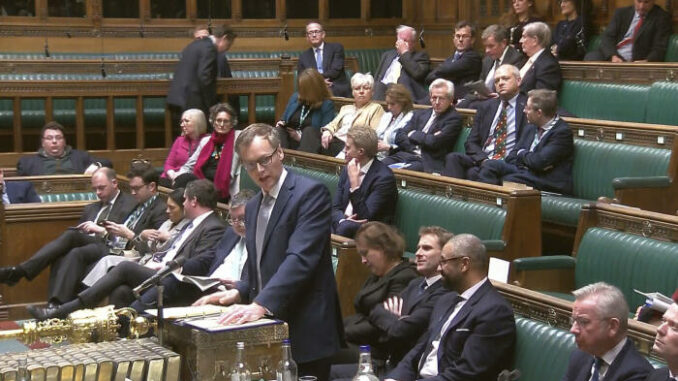
British Conservative Prime Minister Rishi Sunak overcame an attempt by his majority to get MPs to give the green light to his bill to relocate the asylum system to Rwanda on Wednesday January 17.
After two days of high tension at the Palace of Westminster, with stormy debates, closed-door negotiations and resignations, the dissidents returned to the ranks. The text providing for the relocation of the asylum system to Rwanda was approved at third reading in the House of Commons with 320 votes in favor and 276 against.
A relief for Rishi Sunak. Largely outpaced in the polls by the Labour Party at the start of the election year, the Prime Minister threw all his weight behind this project, which was supposed to demonstrate his firmness on a major concern of his base, but which exposed the divisions in his majority, with moderates fearing an infringement of international law and the more right-wing wanting to go further.
This text is intended to meet the objections of the British Supreme Court, which ruled the project illegal in its previous version, fearing in particular for the safety of asylum seekers sent to Rwanda. According to the draft, asylum seekers, wherever they come from, would have their case examined in Rwanda, and would then under no circumstances be able to return to the UK, being able to obtain asylum only in the African country if successful.
During its examination, dozens of Conservative MPs unsuccessfully backed amendments aimed at toughening the text, in particular attempting to limit migrants’ right to appeal against their expulsion. Tensions have also risen following the resignation on Tuesday of two Conservative party vice-chairmen, who support a harder line and have received the backing of former Prime Minister Boris Johnson.
Announced in April 2022 by the latter, this project aimed to discourage the influx of migrants in small boats across the English Channel: nearly 30,000 last year after a record in 2022 (45,000). But the text has never been implemented. A first plane was blocked in extremis by a European court ruling, then the British justice system, all the way to the Supreme Court, declared the project illegal in its initial version.
In an attempt to save its text, strongly criticized by humanitarian associations, the government signed a new treaty with Rwanda. The new bill defines Rwanda as a safe third country and prevents migrants from being sent back to their countries of origin. It also proposes not to apply certain provisions of the UK Human Rights Act to expulsions, to limit legal recourse.
The UN refugee agency (UNHCR) said on Wednesday that the latest version of the draft was “not compatible” with international law.
